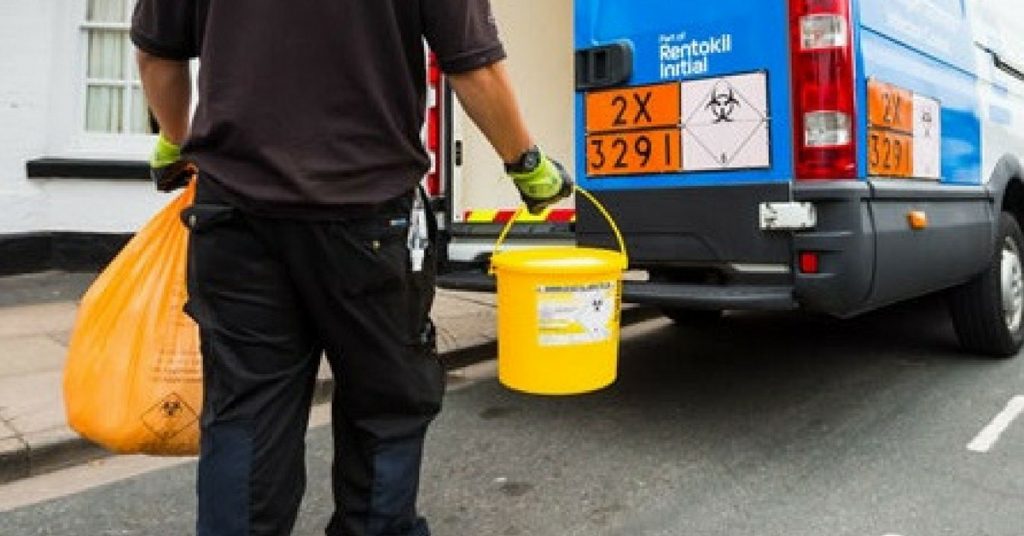<p style="text-align: justify">The issue of wrong discarding of menstrual waste is a major impediment in efforts to clean up India. Sanitary napkins are choking landfills in the country. The Indian government is promoting the use of <strong>sanitary napkin incinerator</strong> to deal with the issue.</p>
<p style="text-align: justify">Unsuitable removal of menstrual waste is a serious problem because of the following reasons:</p>
<ul style="text-align: justify">
<li><strong>Pollution:</strong></li>
</ul>
<p style="text-align: justify">The first reason emerges from the fact that sanitary napkins made of plastic have taken the place of cloth napkins, by and large. The material that goes into creating plastic napkins cannot be bio-degraded or recycled. When such napkins accumulate in landfills and water systems, it is a main reason for soil and water pollution.</p>
<p style="text-align: justify">Napkins that are not discarded properly (flushed down toilets) can cause blockages in the drainage system. Burning these napkins results in release of harmful toxins into the atmosphere and thus is very damaging to the environment. On the other hand though women of low income groups use mostly cloth napkins, they do not pay attention to hygiene and health.</p>
<ul style="text-align: justify">
<li><strong>Growth of pathogens</strong></li>
</ul>
<p style="text-align: justify">When menstrual blood on the napkins stagnates over a long period, pathogens can thrive in the blood. Stagnation of menstrual blood results in growth of pathogens like Escherichia coli bacteria that reproduce in exponential rates. The bacteria are nourished by the Red Blood Cells in the menstrual blood which emits a foul door, when they die. Large of heaps of used napkins can seriously compromise hygiene of surroundings.</p>
<ul style="text-align: justify">
<li><strong>Lack of awareness</strong></li>
</ul>
<p style="text-align: justify">Improper disposal of menstrual waste is a problem at the level of grass roots. All aspects of menstruation are a taboo subject, especially in Indian villages. Women are unaware of issues of hygiene caused by wrong discarding of sanitary napkins. There is a need to make efforts to create awareness of about the value of menstrual hygiene and its attendant problems. There is yet another crucial need – that of biodegradable alternatives to plastic napkins.</p>
<p style="text-align: justify"><strong>Solution</strong></p>
<p style="text-align: justify">The interim solution adopted by the Indian government is that of incineration. In an attempt to encourage the right discarding of menstrual waste and implement the ‘Swach Bharat’ mission, incinerators and sanitary pad vending machines were setup in 2 women’s hostels in Delhi. One among the superior ways for discarding menstrual waste is to incinerate sanitary napkins using physical fire based or electricity based incinerators without permitting the smoke generated in the process to escape into the atmosphere. Napkins need to be incinerated instantly after use, without allowing pathogens to grow in them and <strong>medical incinerator with conveyor</strong><strong> </strong>can be used for this purpose<strong>.</strong> The incinerators are easy to use and small in size. They minimize the smoke generated in the process of incineration to a particular chamber and stop it from entering the atmosphere.</p>
<p style="text-align: justify">It is vital to take up the initiative for promoting forward menstrual sanitation and right discarding of menstrual waste by promoting awareness, pushing women to use eco-friendly measures and encouraging research to invent biodegradable substitutes to plastic napkins. Such steps need to be taken for solving problems that wrong disposal of sanitary napkins causes to public health and the environment.</p>
<p style="text-align: justify">

Need of Proper Disposal of Menstrual Waste in India
